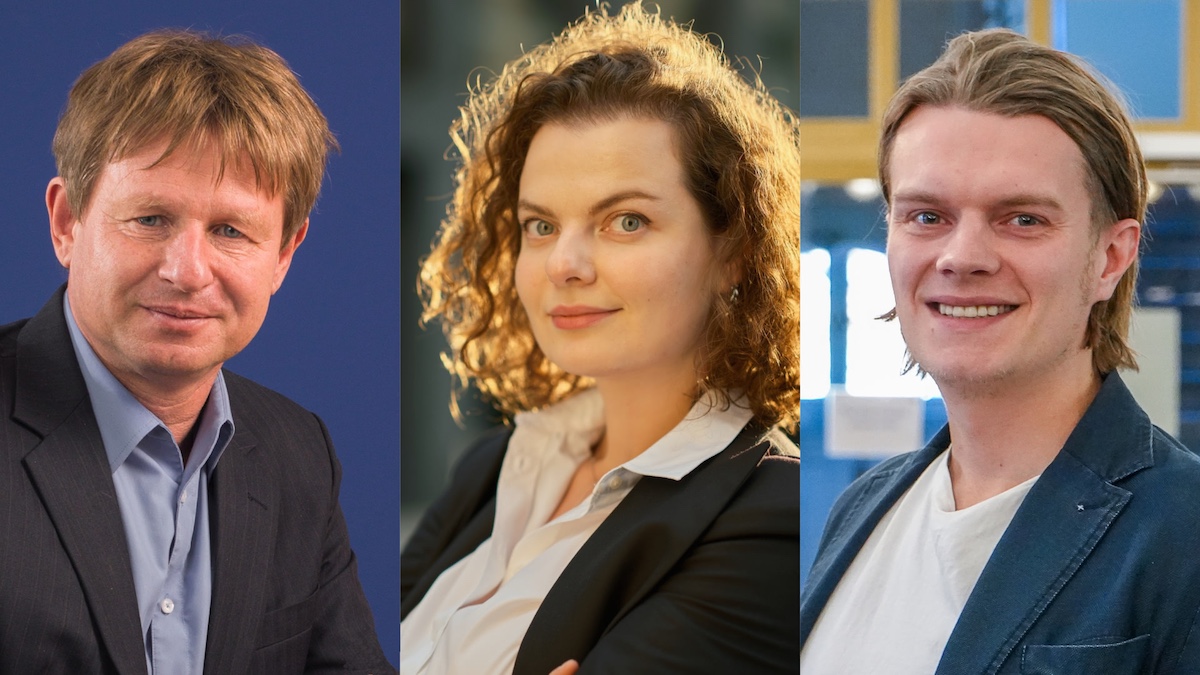HEC Lausanne (UNIL), the University of Zurich (UZH) and UNHCR join forces to meet the needs of refugees
As soon as they arrive in a host country, refugees face urgent questions: how to access healthcare, get social assistance, enroll children in school, or understand administrative procedures. But how can we provide them with clear, rapid answers, without overburdening already strained systems? Where can digital technology make a real difference? And how do we ensure these tools respect privacy, safety, and dignity?

These are some of the questions at the core of a new partnership between the Innovation Service of UNHCR, the UN Refugee Agency, and researchers from HEC Lausanne (UNIL) and the Department of Informatics (UZH).
The origins of the collaboration lie in the research carried out by Professor Liudmila Zavolokina – now at HEC Lausanne – and her colleagues, Professor Gerhard Schwabe and PhD student Kilian Sprenkamp, from the University of Zurich. In response to the Ukrainian refugee crisis, their study analyzed public Telegram channels to better understand the most pressing questions and needs of newly arrived refugees in Switzerland. This data-driven approach highlighted the urgent demand for timely, structured information, both for refugees and those supporting them.
Drawing on these insights, the research team developed two digital solutions: a multilingual chatbot to deliver immediate, reliable answers to refugees’ most common questions, and a decision-support dashboard for humanitarians and public sector organizations, helping them identify and respond to real needs based on up-to-date community data. "We wanted to create a digital solution that would enable refugees to get immediate, reliable and understandable answers to their concrete needs, without waiting for a call or an email response," explains Liudmila Zavolokina. Kilian Sprenkamp, PhD student at the University of Zurich’s Department of Informatics, shares this commitment to meaningful impact: “I got into research to use computational methods, especially AI, for good. Collaborating with UNHCR shows that even in turbulent times, there are many committed people working toward the same values. It’s a privilege to be part of this effort.”
A project on a new scale thanks to partnership with UNHCR
Joining efforts, HEC Lausanne (UNIL), UZH, and UNHCR can apply their expertise to enable the cost-effective development of cutting-edge AI tools to understand the needs of refugees and forcibly displaced populations, directly supporting UNHCR's core protection mandate while ensuring all data is managed responsibly and ethically. UNHCR brings deep humanitarian experience, innovation expertise and a strong commitment to human values, while HEC Lausanne and UZH contribute their academic expertise, which has already resulted in the first chatbot and decision-support dashboard solutions.
This partnership also aims to understand what works in different settings and how digital tools like chatbots and decision-support systems can offer real relief, tailored to cultural, linguistic and legal realities. "This type of solution has real potential to transform the way we interact with refugees from day one," says Hovig Etyemezian, head of UNHCR’s Innovation Service. “Using digital technologies like this, in a contextually adapted, inclusive way, can help us respond faster and more humanely, with support that truly addresses people’s needs.” adds his colleague Moises Maldonado, Data Scientist.
A shared ambition: combining science, innovation and humanity
At the crossroads of academic research, technology and humanitarian action, this collaboration is about researchers and humanitarian organizations co-creating the future of the humanitarian response. The aim is to ensure that new solutions are developed in collaboration, strengthening organizational capacity, improving support for people in crisis, and always keeping human needs at the forefront.

- Sprenkamp, K., Dolata, M., Schwabe, G., & Zavolokina, L. (2025). Data-driven intelligence in crisis: The case of Ukrainian refugee management. Government Information Quarterly, 42(1), 101978.
- Sprenkamp, K., Eckhardt, S., Zavolokina, L., & Schwabe, G. (2025). From Information-Seeking to Information-Asking: Designing RefuGPT, a Chatbot for Ukrainian Refugees in Switzerland.Digital Government: Research and Practice.